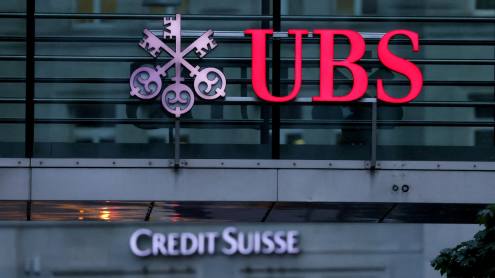Q: Luxembourg’s economy has been growing strongly and the fiscal position has been strong. How is the implementation of international tax initiatives going to affect that position, considering the country’s attractive tax system?
A: Many observers over the past couple of years have been surprised at how the base erosion and profit-shifting [BEPS] initiative at the G20 level and the Organisation for Economic Co-operation and Development [OECD] level could conclude its immense work, and we now have an agreed framework with lots of proposals that all the countries are called upon to implement.
The EU has been a pioneer in this field, doing things more quickly. We have adopted two anti-tax avoidance directives in Europe and we are presently... implementing that.
I would like to underline that this was only possible because of unanimity, so Luxembourg together with all the [other countries] was very eager to go forward with this way of implementing agreed standards.
Now you are asking me what Luxembourg thinks about it and how it could affect our economy. It is key to understand that we are doing this in parallel with other countries around the world. What the OECD BEPS initiative has done is to set a framework that will apply to all [major] countries and that means that we are all changing at the same time. In other words, we are building a level playing field. And when we all change at the same time, you do not make one country less competitive than the others. That is quite different from initiatives that would be taken on an individual basis.
Q: What is your view on the initiative from the EU to create a common corporate tax base? This idea has been suggested in the past and is being reintroduced.
A: The common corporate tax base directive was originally presented many years ago and failed to convince the members. Now the European Commission has built on the success of the BEPS initiative of the OECD and the G20 to relaunch that directive. Elements of the directive are picking up on this general framework, such as bringing the tax base of all the countries closer together.
I have two points to raise on that. One is that we must make sure that we do not make Europe less competitive than the rest of the world. We need a level playing field and we need to make sure that the goal that we want to achieve, to be maybe more convergent in terms of tax base, doesn’t mean that we make Europe less competitive.
The other is that we must look carefully at what is in the BEPS initiative, what we must take over and what is nice to have. Our parliament in Luxembourg has clearly stated that we must make sure that the directive builds on subsidiarity and proportionality, so [the EU] should only decide on matters that we really need.
Q: How much of an impact will the UK leaving the EU have on Luxembourg’s economy?
A: We have to distinguish the short term from the medium term. In the short term, as has been very evident, many players in London have to prepare for [an unpredictable] future. It has become obvious that after Brexit, the UK will not be able to keep full and automatic access to the EU single market. This being understood by everybody, and many companies are looking for a foothold, a headquarters, a subsidiary inside the EU single market, and many are considering Luxembourg. Some insurers have chosen Luxembourg – a couple of companies have already communicated that – and also some in asset management and probably also some in fintech are going to choose our country. So we are very pleased about that.
On the other hand, we insist on having as strong a bridge with London as we have today. Let’s also be realistic: it is not because you lose the automatic full access to the EU single market that you cannot do business together anymore. You can do it by using a subsidiary, as for example the Swiss banks have shown in the past.
But in the medium term, what is of concern to Luxembourg, and I suppose to many countries, is that once the UK walks out of the EU, the largest financial centre in the world will not be in the EU anymore, because London will probably remain the most important financial centre. So we need to build these bridges and we need to make sure that the UK and its financial centre get the right link with Europe. We don’t want to see the financial centre of London drift away into the Atlantic.












